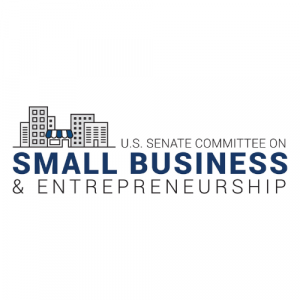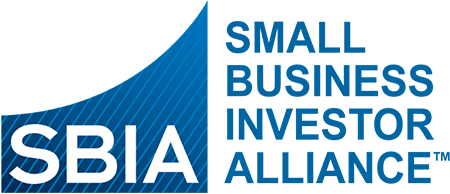Role of SBICs, RBICs Highlighted at Senate Small Business Committee Hearing
At a Senate Small Business Committee hearing, SBIA Board Chair Ben Geis and RBIC Council Chair John Mickelson highlighted the important role SBICs and RBICs play in driving investment to rural areas and critical industries.
WASHINGTON, DC (May 16, 2025) – Small Business Investor Alliance (SBIA) Board Chair Ben Geis and Board Member John Mickelson testified before the U.S. Senate Committee on Small Business & Entrepreneurship this week in a hearing titled, “Financing America’s Manufacturing and Industrial Boom.”
Mr. Geis’s testimony emphasized the critical role Small Business Investment Companies (SBICs) have in expanding access to capital for small and mid-size businesses in underserved and rural areas, and in critical industries. He highlighted how SBICs drive economic growth and job creation across the country, with no taxpayer subsidy.
Mr. Mickelson’s testimony focused on the success SBICs and Rural Business Investment Companies (RBICs) have had in helping small businesses grow, particularly in sectors like agriculture and manufacturing, creating new jobs and opportunities in America’s heartland.
Below are key excerpts from the hearing.
Mr. Mickelson’s opening statement:
Mr. Mickelson: “Starting with seven employees after our first investment in 2014, today Midwest Growth Partners companies employ more than 3,000. These jobs all provide living wages, benefits, and much-needed off-farm income for families…Smaller businesses particularly those in low-income or rural areas tend to have more difficulty accessing traditional sources of capital because they don't have the balance sheets of big businesses and are therefore seen as too risky. This is where RBICs and SBICs fill the gap with capital. Established in 2002, RBICs fill small business capital gaps by providing patient investments for small businesses throughout rural America. Today, there are 22 RBICs in operation with over $1.7 billion in committed capital. SBICs have been around since 1958. SBIC funds are private investment vehicles that pool capital from institutional investors with leverage from the SBA, which is invested into businesses to help them grow.”
View the full opening statement >
Mr. Geis’s opening statement:
Mr. Geis: “I’m proud to be here not just as a representative of my firm and SBIA, but as someone who understands, firsthand, economic challenges and the potential of rural and lower income America. I grew up in a town of just 600 people in Nebraska and my partners hail from in and around St. Louis, Missouri. We were raised in communities where entrepreneurship is common, but access to capital is often limited. That’s why we chose to use our backgrounds in finance, not on Wall Street, but to invest in America’s small businesses, particularly in the communities that shaped us… In Missouri alone, we’ve invested in 16 companies resulting in 20% job growth, a meaningful impact in places where every job counts…Those numbers represent more than capital deployed; they represent real growth and real communities.”
View the full opening statement >
Responding to Committee Chair Joni Ernst (R-IA) on addressing barriers to small business growth:
Mr. Mickelson: “Certainly access to capital, as we've talked about today. So, when you look at a business that is scaling, they're trying to add new people, more talented people, more educated people, and that comes at a cost…And that's a big part of just the professionalization process that you try to do in each one of our investments. And so, each investment that we look at, they're successful, they've done a great job, but we're trying to take them to the next level and help them grow. And so that takes expertise. And that's largely human capital driven and it takes capital to build out property and equipment and invest in that technology.”
Responding to Sen. Josh Hawley (R-MO) on how the SBIC program focuses investment in America’s heartland:
Mr. Geis: “First of all, you know, it's a stable, long-standing program. It's been around since 1958. It's operated at a zero subsidy from the taxpayer since its inception. But I think what's critical about what SBICs do in Missouri, and in lots of other states, is that we provide that critical next stage of capital to really go create that growth and to drive to the next level. So, oftentimes, entrepreneurs go raise capital and invest their own money to start their businesses. But when they hit sort of a critical inflection point, they need that next round of capital, to really invigorate growth. And that's what SBICs do…
“SBICs fill a gap, right? I mean everybody knows about the capital markets and the large lenders and larger private equity funds that ultimately invest those large dollars of capital that we hear about, but SBICs are squarely in the heartland of America and small businesses. I mean, that's what we do day in and day out.”
Responding to Sen. John Hickenlooper (D-CO) on how the Investing In All of America Act would expand access to capital for rural and lower-income communities, and manufacturers:
Mr. Mickelson: “Certainly the passage of the Investing In All of America Act, which I know you introduced last Congress and hopefully it’ll get through this Congress, will increase funding to the SBIC programs, so there will be more opportunities for investment…It will also specifically target rural and low-income areas…That would give groups like us more opportunities to make those investments. And then finally it would provide bonus leverage for manufacturers… Right now, 20 percent of dollars from SBICs, roughly, go into manufacturers and so with some bonus leverage we would expect that number to go higher because there would be more capital available.”
About the Small Business Investor Alliance (SBIA)
The Small Business Investor Alliance (SBIA) is the premier organization of lower middle market private equity funds and investors. SBIA works on behalf of its members as a tireless advocate for policies that promote competitive markets and robust domestic investment for growing small businesses. SBIA has been playing a pivotal role in promoting the growth and vitality of the private equity industry for over 65 years. For more information, visit www.SBIA.org or call (202) 628-5055.

